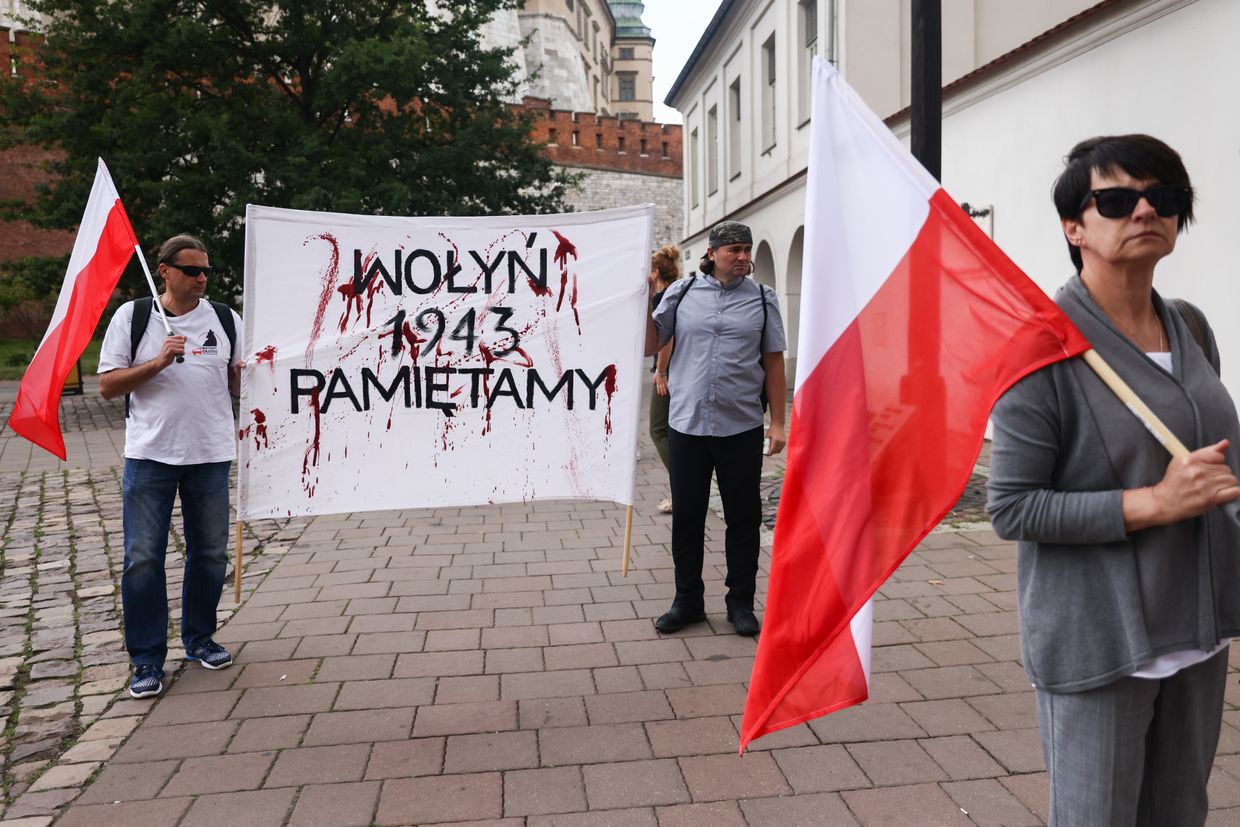Polish FM reportedly suggests UN mandate and referendum in Crimea

Polish Foreign Minister Radoslaw Sikorski said that Crimea is a key point in any possible peace talks between Russia and Ukraine and suggested "demilitarizing" the peninsula, Interfax-Ukraine reported on Sept. 19, citing the minister's comments at YES conference in Kyiv.
"We could put it under a U.N. mandate with a mission to prepare a fair referendum after establishing who the legal residents are and so on... And we could postpone it for 20 years," Sikorski suggested as one possible option, according to the news agency.
Russia has illegally occupied Crimea since 2014, sparking international condemnations and sanctions. The peninsula remains internationally recognized as Ukraine's sovereign territory.
"Crimea is symbolically important for Russia, and especially for (Russian President Vladimir) Putin, but strategically important for Ukraine. Therefore, I do not see how they will be able to come to an agreement without demilitarizing Crimea," Sikorski said.
The Polish minister also voiced belief that the West made a mistake when it allegedly told Ukraine not to fight for Crimea in 2014.
"If Ukrainians had fought in Crimea, even symbolically, he (Russian President Vladimir Putin) would probably not have decided (to attack) Donbas," Sikorski said.
Some of Sikorski's comments prompted a pushback in Ukraine, namely among the Crimean Tatar community.

The Mejlis, the Crimean Tatars' chief executive-representative body, denounced the proposal about Crimea's status as "unacceptable and cynical."
"Crimea is a temporarily occupied territory of Ukraine, and the first step to establishing peace should be the withdrawal of the Russian occupying forces from the territory of the peninsula," the statement read.
The Mejlis also considers any disputes on the "legality" of the peninsula's residents as "unnecessary and inappropriate."
"According to Ukrainian and international law, Crimea's 'legal residents' are exclusively citizens of Ukraine and persons who have established their permanent or temporary residence in accordance with Ukrainian legislation," the Mejlis said.
Ukraine's Foreign Ministry later issued a statement saying that "the territorial integrity of Ukraine has never been and cannot be a subject for discussion or compromise. Crimea is Ukraine. Period."
Up to 800,000 Russian citizens have illegally settled in Crimea since the start of the occupation in 2014, Ukrainian authorities said last year. Russia's rule has also been accompanied by systematic repression and persecution of Ukrainians and Crimean Tatars.
"Crimea is Ukraine. Russia has violated international law and must be held accountable for it," Presidential Office head Andrii Yermak said on his Telegram channel on Sept. 19, without explicitly referencing Sikorski's comments.
Tamila Tasheva, the presidential representative for Crimea, called the minister's statements "unfortunate, especially in view of the events that have taken place since 2014."
"After the illegal occupation of Crimea in 2014, the inhabitants of the peninsula suffered systematic human rights violations, persecution, and repression," Tasheva said.
"This especially applies to Crimean Tatars and Ukrainians who face discrimination, illegal detentions, and restrictions on freedom of speech and religion."
Ukraine stands firm on its 10-point peace plan that includes the full restoration of territorial integrity, Tasheva said, voicing hope for "further solidarity and support from our international partners in countering aggression and protecting the principles of international law."
While Poland has been a key ally to Ukraine during the full-scale war with Russia, Sikorski's trip to Kyiv was accompanied by an uneasy atmosphere.
President Volodymyr Zelensky's meeting with Sikorski on Sept. 13 "was extremely tense; it could even be described as a dispute," the Polish outlet Onet wrote.
The Polish delegation was reportedly taken aback by Zelensky's tone, who criticized the supposed lack of Warsaw's support in Ukraine's EU integration and called for greater military supplies.
Ukraine's head of state also reportedly called out Polish leaders for bringing up the matter of the Volyn massacre in the current situation.
This refers to the 1943 massacre of tens of thousands of Poles by members of the Ukrainian Insurgent Army (UPA) in Nazi-occupied Volyn, a region that used to be part of Poland and is now part of Ukraine. Thousands of Ukrainians were killed in retaliation.
Kyiv and Warsaw did not publically confirm any dispute during the talks.











